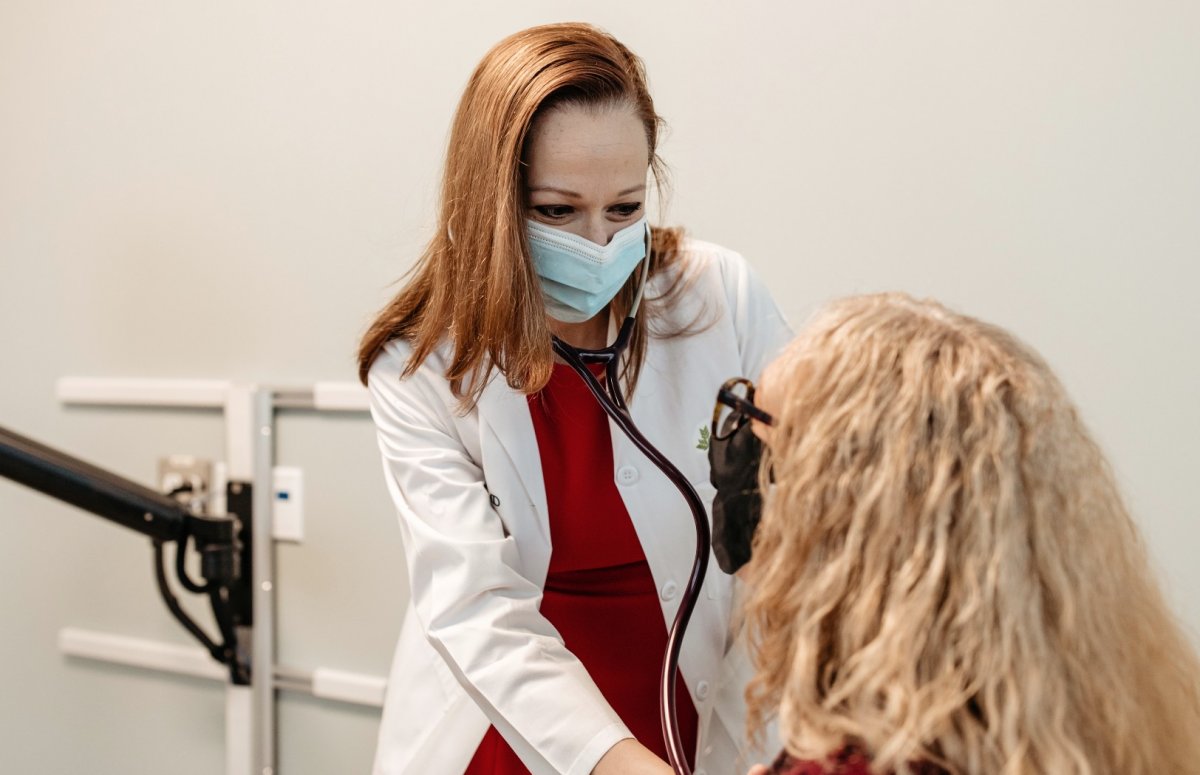When it comes to heart health, there are far too many misconceptions. This is especially true for women and the unique ways heart disease affects them. While we’ve made great strides in the last decade in recognizing—and educating ourselves about—heart disease prevention, risk and treatment, there’s still so much that’s not fully understood.
It’s time to put these common myths about heart disease and women to rest. Laura Divoky, MD, MPH, FACC, non-invasive cardiologist at Georgia Heart Institute, helps set the record straight and shares key facts to remember.
Myth: Heart disease is more common among men.
“While the specific number of men versus women affected by heart disease may vary, that doesn’t change the fact that heart disease is leading cause of death for both American men and women,” says Dr. Divoky.
Each and every year, this disease takes the lives of nearly 655,000 US adults.
“It’s so important for every person to prioritize heart health and to take steps to live a heart-healthy lifestyle because it’s not a simply a man’s disease or a woman’s disease – it can impact anyone.”
Myth: Heart disease affects men more severely.
“The opposite is actually true,” says Dr. Divoky. “Because men often develop heart disease at a younger age than women, they can experience less severe or earlier stages of disease.”
“On the other hand, when women are diagnosed at older ages, they typically have a more advanced stage of disease, which also makes them more likely to develop accompanying conditions and complications.”
This begs the question, why are women diagnosed with heart disease at later stages of life?
“Unfortunately, the unique or abnormal heart disease symptoms women experience are often overlooked or attributed to something else less serious than heart disease, like indigestion or back pain. Unique risk factors for women such a preeclampsia and changes in hormone levels can be overlooked as well.” explains Dr. Divoky.
Myth: Cancer affects more women than heart disease.
Heart disease and stroke together cause one in three deaths among women each year. That’s more deaths than all types of cancer combined.
We often think of breast cancer as being a common cause of death among women, but the numbers tell a different story. One in 39 women die of breast cancer, while one in five women die of heart disease.
Myth: Heart disease only affects those who are older and unfit.
“Heart health issues can—and do—impact women of all ages and fitness levels,” says Dr. Divoky. “In fact, we’re seeing more cases of heart disease among younger women than ever before.”
“There are several factors that may be behind these increasing instances, such as more sedentary lifestyles, a diet high in processed foods and chronic, high stress. Together, these factors can take a toll on women’s heart health beginning as early as their twenties.”
“Even if women aren’t diagnosed with heart disease until their fifties or sixties, it doesn’t develop overnight. Your overall lifestyle and daily habits in your twenties, thirties and forties – while they may be minor – add up over time and gradually affect your heart health.”
The bottom line is it’s never too early to start protecting your heart health. If you’re looking to reduce your risk, quit smoking, exercise regularly and eat a diet filled with fresh fruits and veggies. Most importantly, though, listen to your body and take note of any abnormal symptoms or changes, especially if you have a family history of heart disease, and work with your primary care provider or cardiologist.
Heart Care Just For You
At Georgia Heart Institute, we recognize that long-term heart health takes dedication and by taking the time to connect with each patient, we’re able understand their unique needs and concerns. In addition to disease prevention and treatment, we work with you to provide specialized, whole-person care that ensures your heart stays at its healthiest – now and always. Learn more about our Women’s Heart & Vascular Program!


